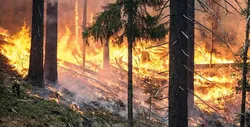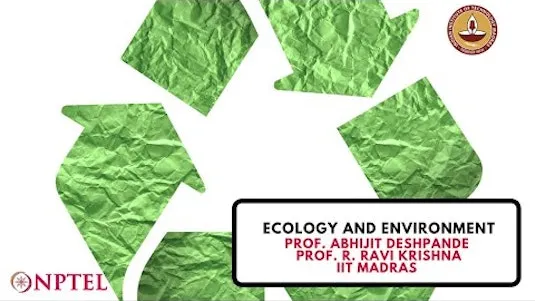
Fire ecology 
This course examines the impact of fire on ecosystems, introducing the concept of a fire regime and its influence on the type and distribution of organisms. Students will gain an understanding of the role of fire as a natural disturbance. ▼
ADVERTISEMENT
Course Feature
![]() Cost:
Cost:
Free
![]() Provider:
Provider:
OpenLearn
![]() Certificate:
Certificate:
Free Certification
![]() Language:
Language:
English
![]() Start Date:
Start Date:
On-Demand
Course Overview
❗The content presented here is sourced directly from OpenLearn platform. For comprehensive course details, including enrollment information, simply click on the 'Go to class' link on our website.
Updated in [February 21st, 2023]
1. Fire Ecology Knowledge:
This course provides learners with a comprehensive understanding of fire ecology, including the role of fire as a natural disturbance in ecosystems, the concept of a fire regime and its influence on the type and distribution of organisms, the effects of fire on the environment, and the management of fire in ecosystems. Learners will gain an understanding of the importance of fire in maintaining healthy ecosystems and the need for careful management of fire to ensure its beneficial effects.
2. Fire Management Skills:
This course will equip learners with the skills and knowledge necessary to effectively manage fire in ecosystems. Learners will learn about the different methods of fire management, including prescribed burning, fuel reduction, and fire suppression. They will also gain an understanding of the importance of fire management in maintaining healthy ecosystems and the need for careful planning and implementation of fire management strategies.
3. Fire Ecology Research:
This course will provide learners with the opportunity to engage in research related to fire ecology. Learners will gain an understanding of the research methods used to study fire ecology, including field studies, laboratory experiments, and computer simulations. They will also learn about the importance of research in understanding the effects of fire on ecosystems and the need for careful management of fire to ensure its beneficial effects.
4. Fire Ecology Applications:
This course will provide learners with the opportunity to apply their knowledge of fire ecology to real-world situations. Learners will gain an understanding of the practical applications of fire ecology, including the use of fire to manage ecosystems, the use of fire to restore ecosystems, and the use of fire to protect human life and property. They will also learn about the importance of careful planning and implementation of fire management strategies to ensure the beneficial effects of fire.
[Applications]
After completing this course, students can apply their knowledge of fire ecology to a variety of contexts. They can use their understanding of fire regimes to inform land management decisions, such as prescribed burning and fuel reduction strategies. They can also use their knowledge to assess the impacts of fire on species and habitats, and to develop strategies for conservation and restoration. Additionally, students can use their knowledge to inform public policy decisions related to fire management.
[Career Paths]
1. Fire Ecologist: Fire ecologists study the effects of fire on ecosystems and the environment. They analyze the impact of fire on vegetation, wildlife, and soil, and develop strategies to manage fire in a way that is beneficial to the environment. Fire ecologists also work to educate the public on the importance of fire in the environment and how to safely use fire in a way that is beneficial to the environment. Developing trends in this field include the use of technology to better understand the effects of fire on ecosystems, as well as the development of strategies to reduce the risk of wildfires.
2. Fire Management Specialist: Fire management specialists are responsible for developing and implementing strategies to reduce the risk of wildfires. They analyze the potential for fire in an area and develop plans to reduce the risk of fire, such as prescribed burning and fuel reduction. They also work to educate the public on the importance of fire safety and the proper use of fire in the environment. Developing trends in this field include the use of technology to better understand the effects of fire on ecosystems, as well as the development of strategies to reduce the risk of wildfires.
3. Fire Prevention Officer: Fire prevention officers are responsible for preventing and controlling fires in their area. They inspect buildings and other structures to ensure they meet fire safety standards, and they investigate the cause of fires. They also work to educate the public on the importance of fire safety and the proper use of fire in the environment. Developing trends in this field include the use of technology to better understand the effects of fire on ecosystems, as well as the development of strategies to reduce the risk of wildfires.
4. Firefighter: Firefighters are responsible for responding to fires and providing emergency medical services. They are trained to use specialized equipment to extinguish fires and rescue people from dangerous situations. Developing trends in this field include the use of technology to better understand the effects of fire on ecosystems, as well as the development of strategies to reduce the risk of wildfires.
Course Provider

Provider OpenLearn's Stats at AZClass
Discussion and Reviews
0.0 (Based on 0 reviews)
Explore Similar Online Courses

Criminology and Criminal Psychology Certified CSI+ Course

App Design: Use Sketch Like a Pro

Python for Informatics: Exploring Information

Social Network Analysis

Introduction to Systematic Review and Meta-Analysis

The Analytics Edge

DCO042 - Python For Informatics

Causal Diagrams: Draw Your Assumptions Before Your Conclusions

Whole genome sequencing of bacterial genomes - tools and applications

South Asian Religions & Ecology

MGPE-014: Gandhi: Ecology and Sustainable Development


Start your review of Fire ecology